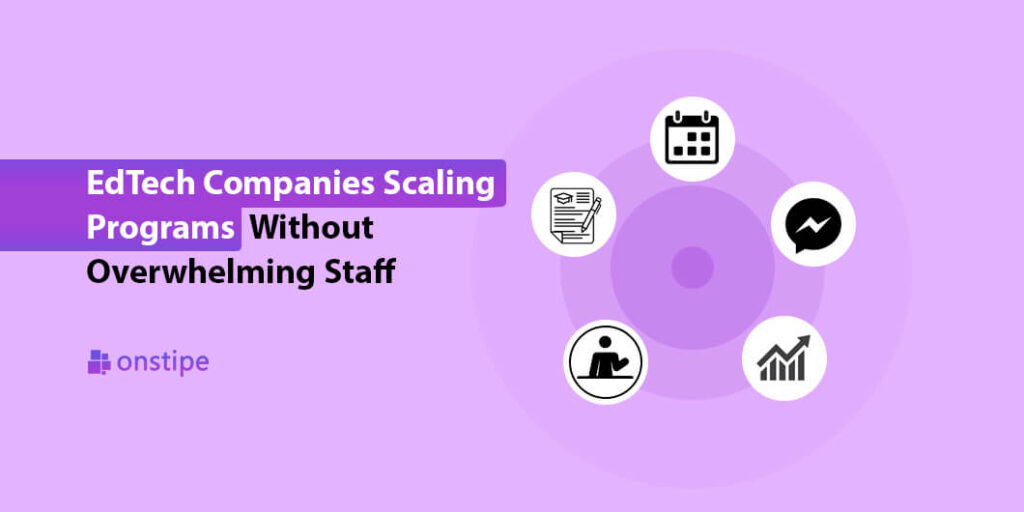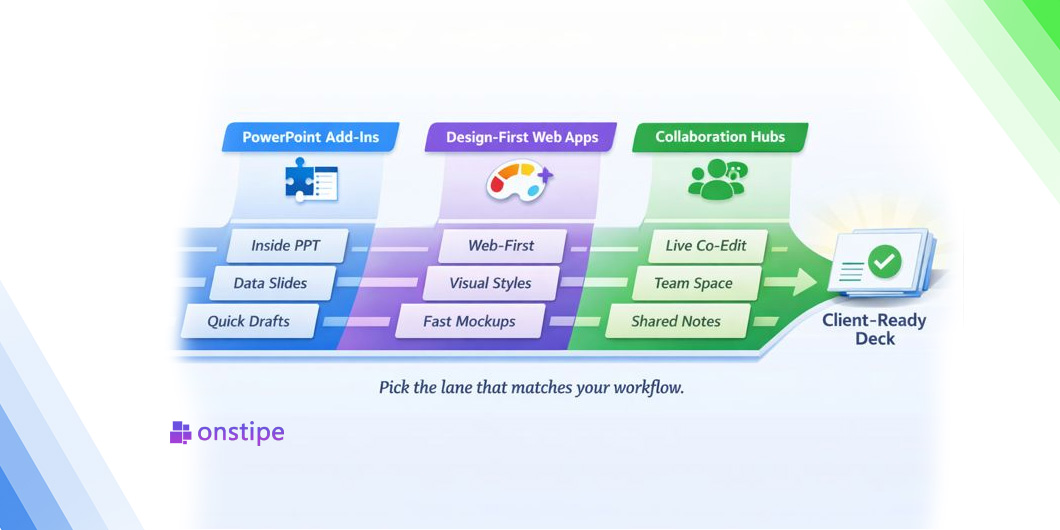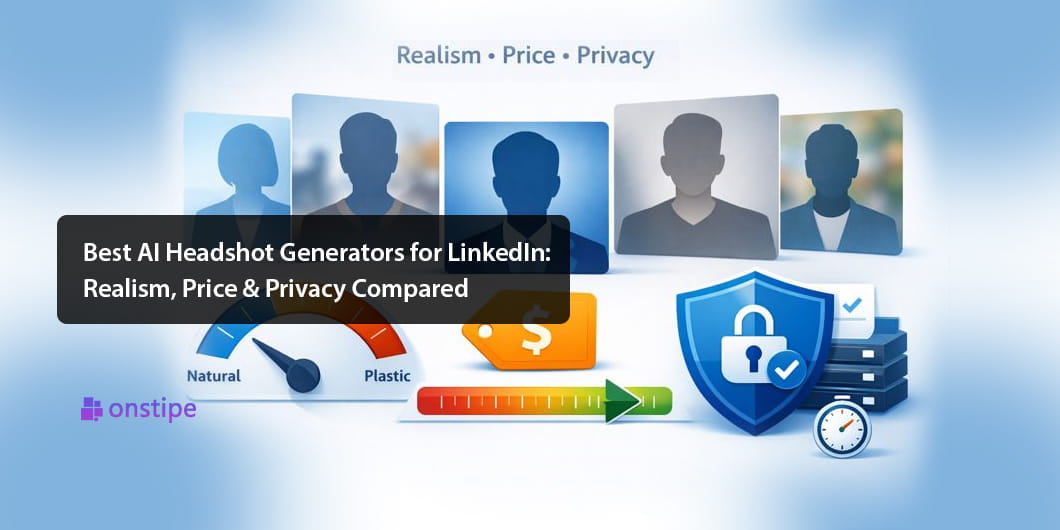The global demand for digital learning continues to grow. From online courses to hybrid classrooms, EdTech companies face the challenge of scaling programs quickly while maintaining quality. For staff, the pressure is immense: designing curricula, managing enrollments, tracking deadlines, and supporting students across platforms. Without strong systems, growth can create burnout instead of impact.
That’s why EdTech leaders often look past generic software when comparing the best project management tools. They need more than task trackers — they need connected platforms that handle content creation, scheduling, communication, and accountability. Lark provides this foundation, enabling EdTech companies to scale programs without overwhelming their staff.
Designing and sharing curricula with Lark Docs
Building effective educational programs requires constant collaboration between teachers, content developers, and administrators. If these documents are scattered across email or separate drives, confusion about the latest version can waste valuable time. Lark Docs provides one space where curricula, lesson plans, and teaching resources are developed collaboratively.
Teachers can co-author lessons, while instructional designers add visuals and administrators review content. Version history keeps track of every change, so staff never wonder which draft is the most accurate. For example, when launching a new math curriculum, instructors draft exercises in Docs, content editors refine language, and program managers review alignment with standards. The result is a polished resource that’s accurate, accessible, and easy to distribute.
Keeping schedules visible with Lark Calendar
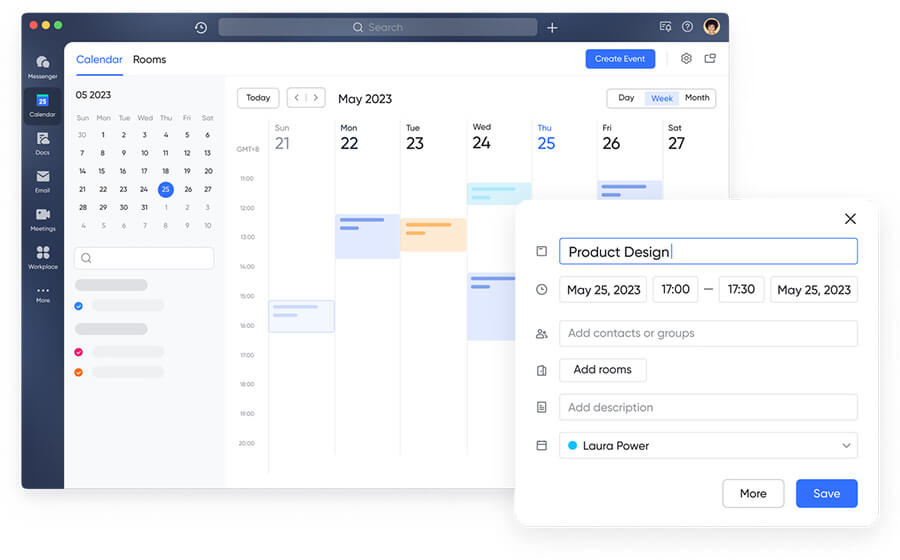
Managing multiple courses and programs means juggling deadlines: student submissions, faculty reviews, and program launches. Without a centralized view, deadlines get missed and learners are left behind. Lark Calendar solves this by making schedules visible across teams.
Shared calendars let staff map academic terms, assignment due dates, and exam periods. Tasks created directly in Lark appear automatically in Calendar, ensuring even smaller steps — like preparing slides or grading assignments — align with broader program goals. For instance, in a hybrid learning program, Calendar shows weekly lectures, lab deadlines, and student presentations. Faculty see their teaching load at a glance, and administrators ensure the academic year stays on track.
Communicating clearly with Lark Messenger
In fast-growing EdTech companies, communication between faculty, staff, and learners must be fast and organized. Relying on long email chains slows down response times and confuses students. Lark Messenger provides instant, structured communication that fits the pace of digital education.
Group chats can be created for specific classes, departments, or projects. Threaded replies keep discussions focused, while file sharing ties resources directly to conversations. For example, if a student has a technical issue accessing an assignment, they raise it on a Messenger groups. IT responds instantly, the instructor confirms alternatives, and the issue is resolved before the deadline. Messenger ensures no learner feels unsupported.
Managing approvals with Lark Approval
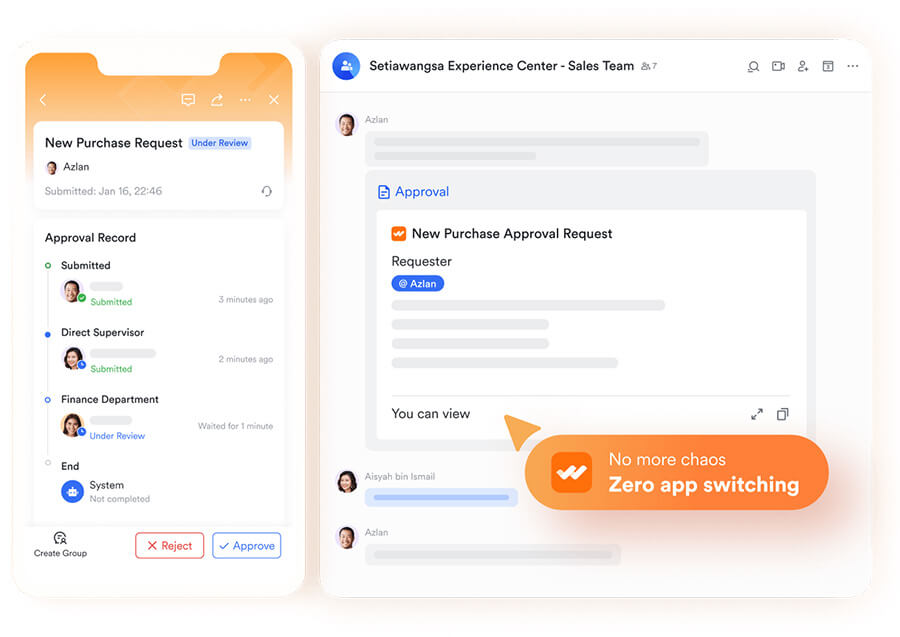
Every new course, program expansion, or tool purchase requires approval. When these workflows are handled through emails or paper forms, delays pile up. Lark Approval, a powerful business process management software, streamlines requests into digital workflows where outcomes are quick and traceable.
For example, if an instructor proposes a new elective, they submit the request through Approval. Leadership reviews, approves, and records the decision instantly. Similarly, budget approvals for external tools or faculty training are processed without delays. Staff feel supported rather than stuck waiting, and learners see new offerings launched on time.
Tracking growth with Lark Base
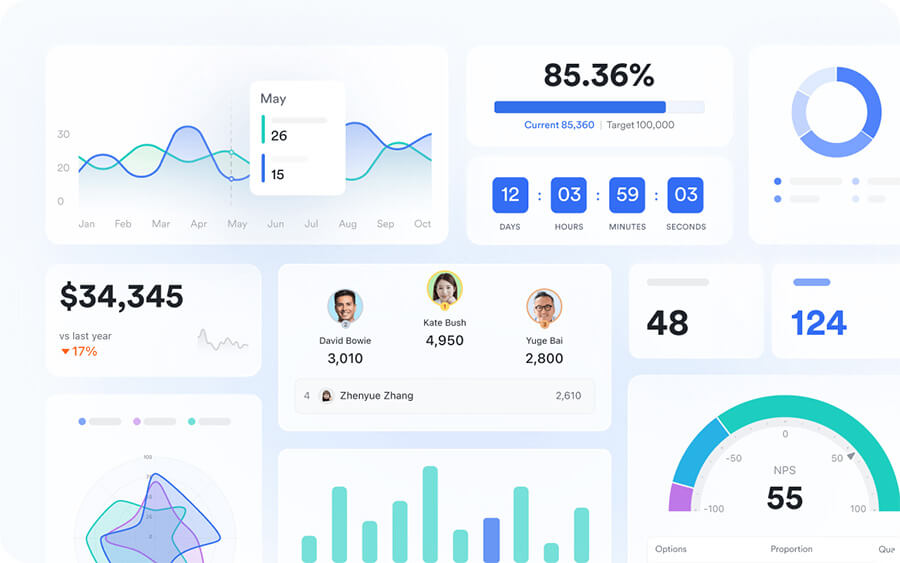
Scaling programs means managing complex data: student enrollments, faculty assignments, content updates, and performance metrics. Spreadsheets can’t keep pace with this complexity. They needed a more robust system, so they turned to Lark as their CRM app.
Lark Base provides a structured system that adapts to EdTech workflows. Teams can create customizable tables to track course progress, enrollment trends, or instructor workloads. Views allow managers to analyze high-level data while educators focus on specific classes. Automations reduce manual effort by sending reminders about grading deadlines or flagging when enrollments exceed capacity. For example, a growing EdTech startup can use Base to monitor which courses are scaling fastest and allocate faculty accordingly, ensuring growth is sustainable.
Running classrooms and reviews with Lark Meetings
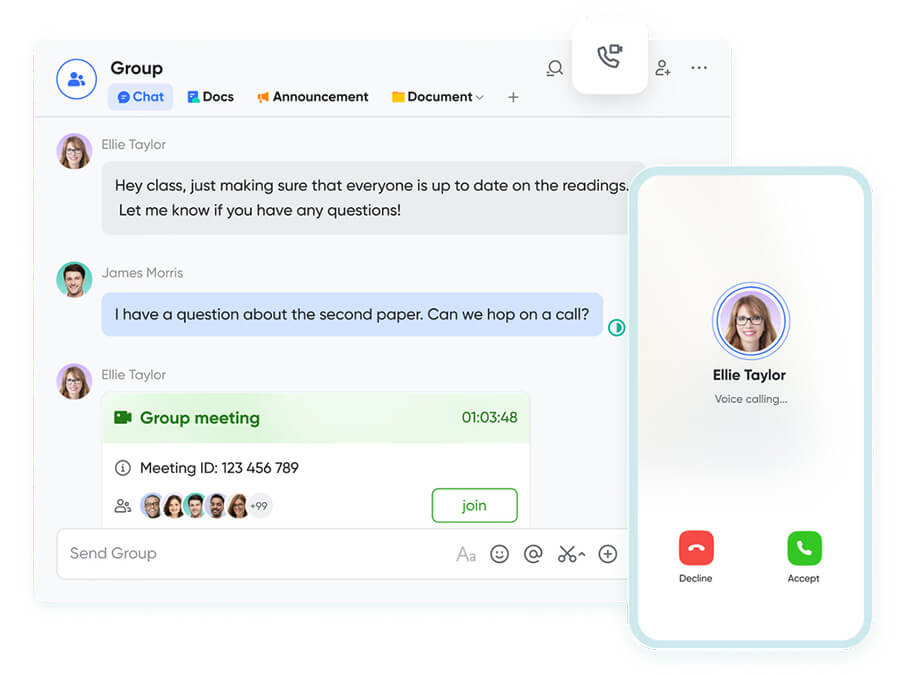
EdTech thrives on live interaction — whether in virtual classrooms, faculty reviews, or parent briefings. Without proper tools, these meetings risk being disorganized or forgotten. Lark Meetings ensures they are structured, effective, and documented.
During sessions, notes are generated automatically, and they can be stored in Docs after the meeting, while recordings can be shared in Messenger for those who couldn’t attend. For example, during a virtual science lab, instructors capture instructions and Q&A in real time. Students who miss the live session still access the material later, ensuring consistent learning outcomes. Faculty reviews also benefit, as decisions about program changes are preserved for accountability.
Conclusion
EdTech companies succeed when growth doesn’t overwhelm staff. With Lark Docs, Calendar, Messenger, Base, Meetings, and Approval, they gain systems that make scaling smooth. Curriculum development is streamlined, schedules stay transparent, communication is instant, and approvals don’t hold back progress.
At the same time, student and partner relationships are critical for long-term success. Many EdTech companies manage this with a Lark, ensuring every learner and partner interaction is tracked and nurtured.
By adopting Lark, EdTech companies scale programs confidently. Staff stay supported, learners benefit from reliable systems, and innovation in education happens without burnout.

